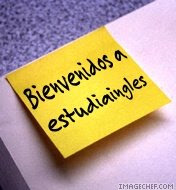USE:
A quantifier, as its name implies, expresses quantity. Quantifiers can be a single word or a phrase and are used with nouns. They can be used with both a countable or an uncountable noun to express amount or quantity. (usingenglish.com)
Large quantities
Examples:
1) - I have a lot (lots of) of money [ both go before a noun (countable and uncountable)]
Do you have shoes?
2 )- Yes, I have a lot. [ A lot goes at the end of the sentence and does not go before a noun]
3) There are many students in my class. [many is used before countable nouns]
4) I don't have much time to study. [used before uncountable nouns]
Small quantities
a little / a few >>>>> some but not a lot ------------ UN POCO DE
very little / very few >>>>> not much / not many -------- POCO/POCA
Examples:
1) My father has very little patience . (little used before uncountable nouns)
2) Do you want some sugar?
- Yes but only a little.
3) I have very few friends (few used before countable nouns)
4) In my town there are a few supermarkets.
Zero quantity
Examples
1) - I don't have any brothers ---- clase de some y any AQUI
2) How many sisters do you have?
- None [ for short answers only]
















